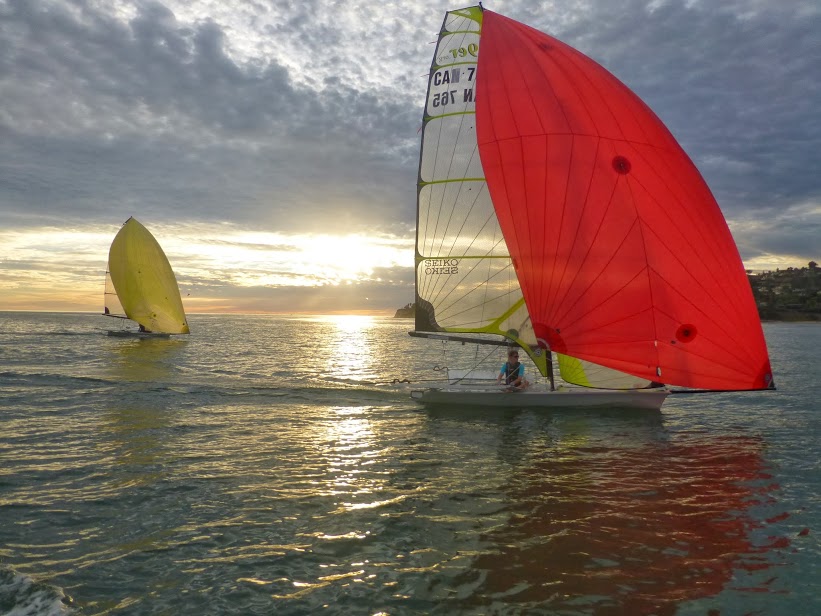With Dane and my first experience sailing with the other members of the US 49er squad right around the corner, we're getting excited to test out many of the skills that we've been working on for the last 6 months. During that time, we've logged over 200 hours in the boat, completed more than 2000 tacks, and sailed in a wide range of wind strengths and sea states. We have created our own style of boat handling and boat speed by maximizing flow over our foils and emphasizing a few other key underlying principles, and in May we'll finally get to see how our ideas stack up against the teams with more time in the 49er and more international experience in the class. We are very confident that we are on the fast track to competitive boat speed and boat handling techniques, but going into the month of May, our goal is to ensure that we can adapt our techniques based on coaches feedback, while reconciling our own ideas about how we should be sailing the boat.
Coach feedback can be one of the best ways to make huge jumps in skills and techniques, but in order to maximize returns on coaching time, it's important to understand how to utilize the feedback in the most effective ways possible. The key to getting the most out of your coaches is to realize what set of tools that they can bring to the table, as well as the things that they can't. Some coaches bring class specific experience, and can try to describe feel and nuances of various techniques, but for the most part, the biggest tool that coaches provide is visual comparison and feedback. Through video and realtime feedback, coaches can help adjust your techniques to be closer to those of another team. They can help you to discover new ways to approach challenges in boat handling, and they can help you to come up with creative solutions to work on your weaknesses. Ultimately however, the most important part of the learning process is to relate the feel of the boat (which only you can experience), and your understanding of how the boat works, to the feedback that you receive from the coach.
Our speed and boat handling philosophies have several underlying cornerstone ideas including simplifying, stabilizing, and smoothing out everything that we do, so next month, we will absorb as much coach feedback as possible and we will ask ourselves, "How can we reconcile these ideas with our underlying principles?" If the suggested changes bring us closer to achieving these principles, then we will change our techniques, otherwise we'll drill down into those core assumptions to try to analyze and refine our understanding of what makes boats go fast. We're looking forward to an intense month on the water, and we're very excited to put this process to work with all of the coaches down in Long Beach!
Before the next time that you get on the water to work with a coach, take some time to think about (and write down!) what your underlying philosophies on boat handling and boat speed are, so that you can go in with a foundation to critically analyze feedback and build on your understanding.
Check out our Olympic Campaign efforts, or make a tax deductible donation by visiting www.FromWhenceWeCame.org


